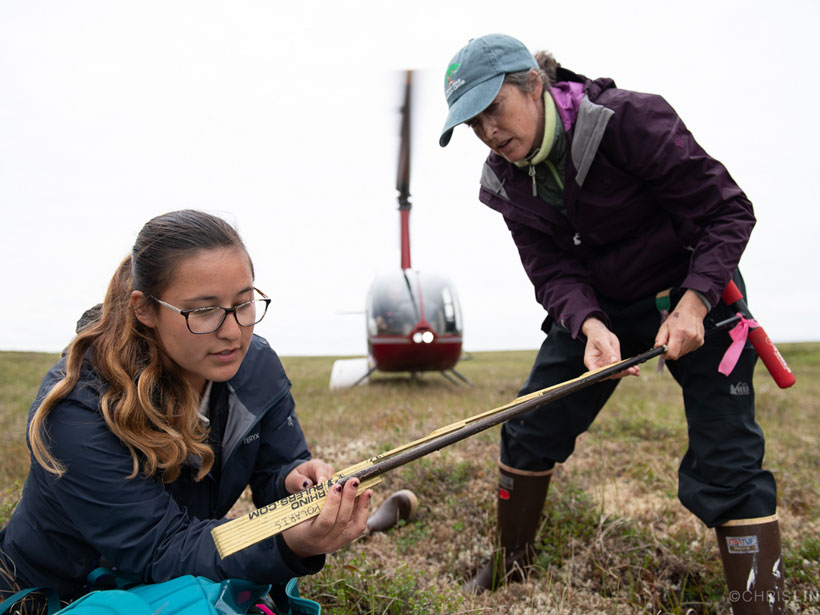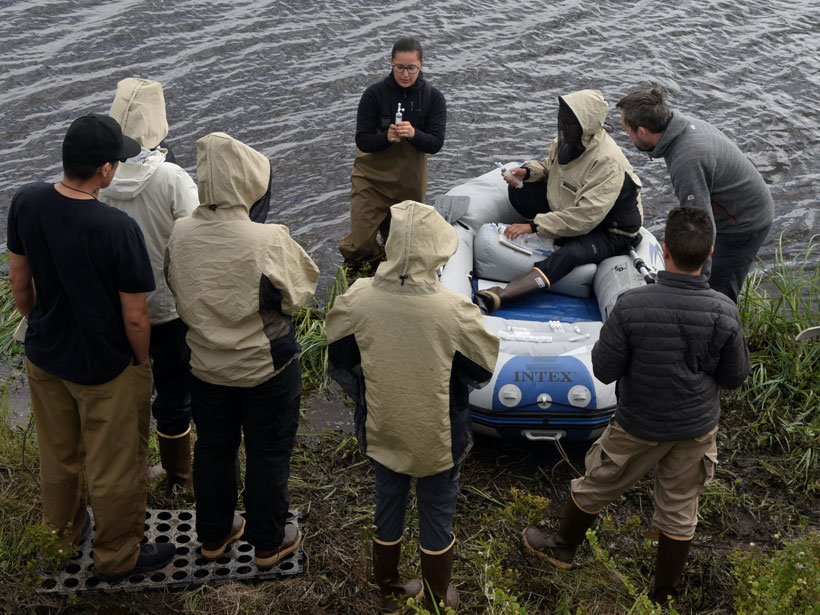A Gwich’in scientist from Beaver, Alaska, Darcy L. Peter spent her childhood on the land around her Alaska Native village hunting, fishing, and trapping. Now she studies the Arctic tundra with the Woodwell Climate Research Center, where she investigates climate change while building bridges between Indigenous communities and research scientists.
Peter majored in environmental biology at Fort Lewis College in Durango, Colo. After graduating, she returned to Alaska for a 1-month Arctic research program with the Polaris Project.

That summer shaped Peter’s career in two pivotal ways: One, she fell in love with field research, and two, she found a workplace that valued her ideas. She pointed out an opportunity for Polaris to connect with the local people near their field site, so the project leaders invited her back the next two summers. It was “really cool as an Indigenous young career person to have my voice be valued and heard.”
For the next 2 years, Peter took jobs at several Alaskan Native nonprofits working with Alaska Native communities on issues such as permafrost erosion and contamination cleanup. She began volunteering on half a dozen boards that control the state’s fishing and river regulations to increase Indigenous participation.
Peter started graduate studies in wildlife biology at the University of Alaska Fairbanks 2 years after graduating college but quickly felt stifled. She had to pass up job offers, like an executive director position at an Alaska Native organization, and was already familiar with the communities she was now reading about in papers. She left after 3 months and soon landed her “dream job” back where she’d started her career: the Polaris Project at Woodwell Climate.

“I am trained to be a scientist, but the cutting-edge science that is being done is not what I’m most proud of. It’s definitely the relationship building, making sure that the science is communicated, making sure the science is ethical, making sure that we’re incorporating Traditional Knowledge into our science…that is the most rewarding work.”
White-dominated spaces, including academia and workplaces, can be taxing on the mental health of scientists of color, particularly women of color, Peter said. But at Polaris, Peter is encouraged to think creatively, and when she presents an idea, her supervisor often tells her to “run with it.” Case in point: Peter wrote a guide for equitable research in the Arctic. “That’s something I’m pretty proud of because it’s gotten a lot of traction in the science world,” she said.
Peter encourages people to follow her on Twitter (@darcypeter1) and familiarize themselves with the Woodwell Climate Research Center’s guiding principles for working in local northern communities.
This profile is part of a special series in our September 2021 issue on science careers.
—Jenessa Duncombe (@jrdscience), Staff Writer
Citation:
Duncombe, J. (2021), Darcy L. Peter: Harnessing Alaska’s native knowledge, Eos, 102, https://doi.org/10.1029/2021EO162358. Published on 24 August 2021.
Text © 2021. AGU. CC BY-NC-ND 3.0
Except where otherwise noted, images are subject to copyright. Any reuse without express permission from the copyright owner is prohibited.


